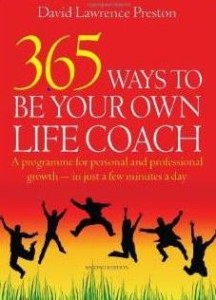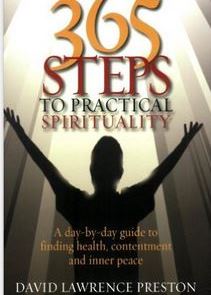‘Here is a test to find whether your mission on Earth is finished. If you’re alive, it isn’t.’
Richard Bach
King Solomon, reputedly the wisest man of his era, said, ‘Where there is no vision, the people perish.’ But it’s amazing how some people have no vision for their lives, no idea where they are going or where they want to be. How about you? Do you have a vision, a sense of mission in your life? Once you know what that is and immerse yourself in it, you open yourself up to great possibilities.
Clarifying your values is the starting point. Once you are clear on what is really important to you, a vision of your ‘life mission’ starts to form.
You already have the answers within you. If you’re not sure, try the following and make a note of your answers. They’re fun to think about, and before long, clear ideas will start coming to you:
1. Ask yourself, ‘What is my life about?’ Listen to your intuition. Allow yourself to daydream (daydreams are often the intuition attempting to communicate). And ask late at night, just before you drop off to sleep – your mind will work on it and you may wake up in the morning a lot clearer. Write down anything that seems relevant, or make a drawing of it. Be patient; the answers may not come immediately, but they will.
2. Try mind storming: write down all your main areas of interest and any cherished goals you can think of. The first few that come to mind are often the right ones for you.
3. Ask yourself the following questions and write down the answers:
- If I could achieve anything I wanted with no possibility of failure, what would I choose?
- If I had ten million pounds, what would I do?
- Supposing I had only six months to live, what would I want to do that would leave the world a better place?
- What would I do if I had everything I wanted?
- If I could have three wishes granted, what would they be?
4. If you had a week to yourself that you could spend any way you wish, with no limitations, how would you spend it?
5. What did you enjoy as a child? (Children are more closely in touch with their intuition.) Then take the top three or four and ask yourself: ‘How can I do more of this or do it more often?’
6. List all the main things you are good at. Add anything you were good at as a child. Then take the first three or four and ask yourself: ‘Am I making the most of these talents? How can I make more of them more often?’
7. Reflect on the coincidences in your life. Is there a pattern? Is it possible that life has been trying to guide you? Be alert; the answer could possibly be in a newspaper article you come across, or a chance remark by a friend.
You’re looking for a major purpose and perhaps a few secondary ones. Don’t expect to get all the answers at once; allow your mind to work on them for a few days. Hopefully, the answers that come will point in a consistent direction.
You’ll know when you’ve found what you are looking for, but if you’re still not sure, try one or two things you fancy. You may be guided to your true vocation this way.
There’s nothing more important than finding a sense of purpose that gives your life meaning and direction and inspires and motivates you.
Find a mission that gives your life meaning and purpose. Turn it into something tangible by setting firm goals (the tried and tested formula for bringing dreams into reality). Find plenty of compelling reasons for wanting to achieve them. Then go for it!
©David Lawrence Preston, 27.7.2016
Follow me on Facebook and Twitter @David_L_Preston
How to Books, 2010




